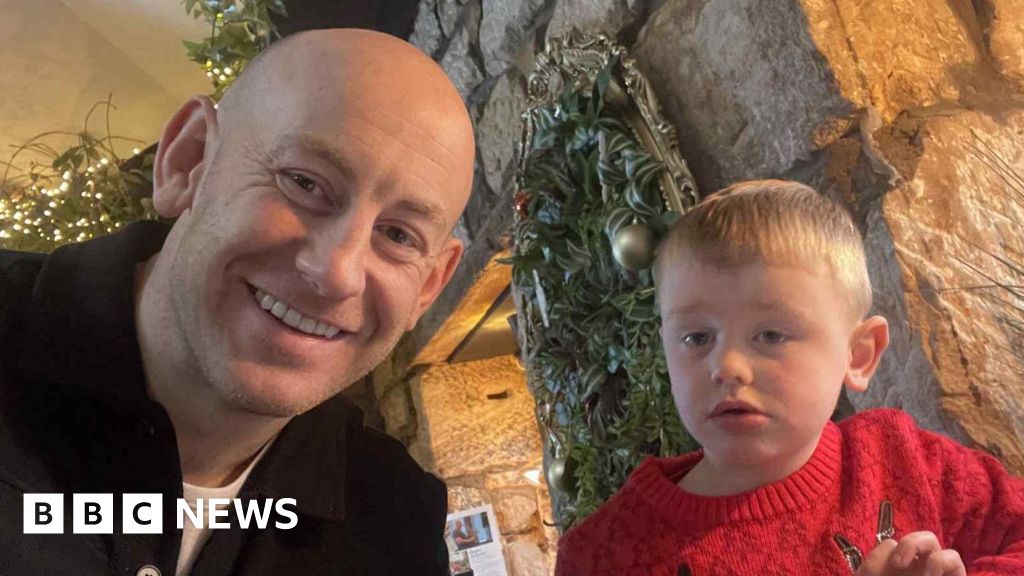Five-year-old Callum is autistic and non-verbal. At nursery, he received weekly one-to-one speech and language therapy to try to develop his speech. His family says he was making good progress and when he started primary school last summer they were led to believe the support would continue. Instead, it stopped, and they are now scared he may never speak.
Callum is one of thousands of children struggling to access the right support with speech. A new report seen by BBC Scotland News shows that demand for speech and language therapists is increasing in Scotland but that the numbers of therapists is falling behind the rest of the UK.
It says more than half of the children who need specialist support are waiting more than 18 weeks and some are waiting up to three years. The report, by the Royal College of Speech and Language Therapists, says Scotland needs to increase its full-time equivalent SLT therapists by 370, from a current total of 530.
The Scottish government has promised to publish an Early Years Speech and Language action plan by the autumn. Glenn Carter, the head of the RCSLT in Scotland, said the report highlighted the importance of embedding SLT in nurseries and supporting children before they get to school as well as once they are there.
He said the provision of SLT was “variable”, with excellent examples in some areas but low levels of funding in others. Teachers say that since Covid more and more children are starting primary school without being able to communicate verbally. Recent figures from Public Health Scotland show that last year more than one in 12 children recorded a delay in speech and language by age five.
Pre-pandemic the figure was only one in 20. Callum goes to a specialist “communication needs” school called Redburn in Cumbernauld, North Lanarkshire. His father Grant said the school and staff are excellent but there is no SLT provision.
Grant thought his son was still getting one-to-one support but then found out the therapist had been off sick. “It was really upsetting,” Grant told BBC Scotland News. “To try to put yourself in his shoes and say how would you feel trying to survive in the world without being able to communicate?” he said.
“He’s due that, he’s got a human right to be able to have it, to give him the tools he needs to be able to survive in this world.” Being non-verbal means Callum can get very distressed if he does not understand what is going on but also cannot tell people what he needs.
His father Grant has been told that this is a crucial stage for his son to get specialist support. Early intervention for children with mutism is recognised as crucial to prevent the problem continuing into adulthood. Grant said: “I’m worried he won’t be able to speak.
“There’s evidence that says the key age is 4-8, where if they can get assistance, then there’s evidence of positive outcomes,” he said. “They are failing in their duty of care if that doesn’t happen.” The Scottish government said it had invested in a programme to support early intervention in speech and language, helping to build confidence and capacity of staff working in early learning and childcare.
A spokesman said: “As laid out in the Programme for Government, we will publish an Early Years Speech and Language action plan by autumn 2025, which will set our practical steps to support children’s early speech and language development.” A North Lanarkshire Council spokeswoman said: “There are UK-wide challenges in recruitment of speech and language staff, and we continue to work closely with colleagues at NHS Lanarkshire to assist in mitigating these.”
Source link




